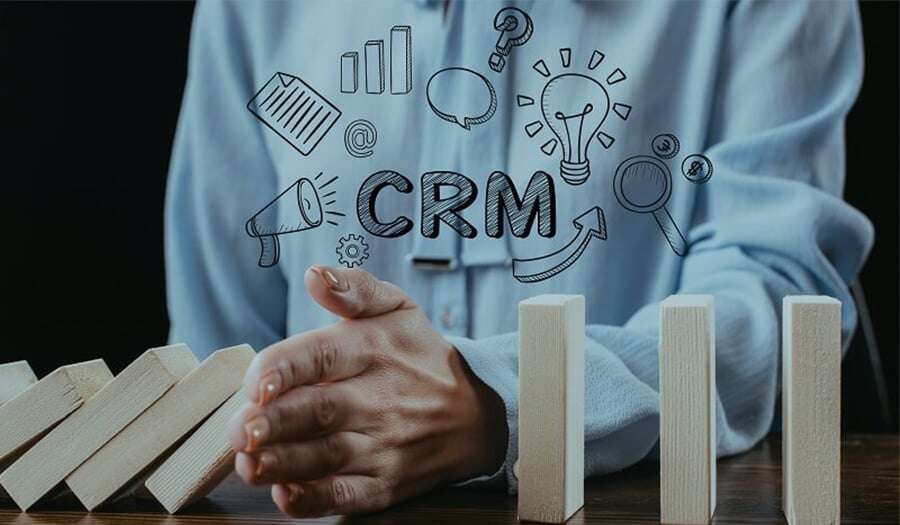Common challenges in CRM implementation and how to overcome them
Customer Relationship Management (CRM) is a key tool for modern businesses, encompassing a set of practices, strategies, and technologies aimed at...
By Role
By Industry
By Target Customer
What We Offer
We drive business growth by improving operational efficiency through process optimization, smart automation, and cost control. Our approach boosts productivity, reduces expenses, and increases profitability with scalable, sustainable solutions
Customer Experience
We design memorable, customer-centered experiences that drive loyalty, enhance support, and optimize every stage of the journey. From maturity frameworks and experience maps to loyalty programs, service design, and feedback analysis, we help brands deeply connect with users and grow sustainably.
Marketing & Sales
We drive marketing and sales strategies that combine technology, creativity, and analytics to accelerate growth. From value proposition design and AI-driven automation to inbound, ABM, and sales enablement strategies, we help businesses attract, convert, and retain customers effectively and profitably.
Pricing & Revenue
We optimize pricing and revenue through data-driven strategies and integrated planning. From profitability modeling and margin analysis to demand management and sales forecasting, we help maximize financial performance and business competitiveness.
Digital Transformation
We accelerate digital transformation by aligning strategy, processes and technology. From operating model definition and intelligent automation to CRM implementation, artificial intelligence and digital channels, we help organizations adapt, scale and lead in changing and competitive environments.
Operational Efficiency
We enhance operational efficiency through process optimization, intelligent automation, and cost control. From cost reduction strategies and process redesign to RPA and value analysis, we help businesses boost productivity, agility, and sustainable profitability.
Customer Experience
Marketing & Sales
Pricing & Revenue
Digital Transformation
Operational Efficiency
4 min read
Por Fernando Hidalgo | May 29, 2025
4 min read
Por Fernando Hidalgo | May 29, 2025
Let me start with a question: what would happen to the data and information of your hotel's potential clients if social media platforms such as Facebook or Instagram were to close down, and if platforms such as Trivago, TripAdvisor or Booking were to cease to exist?
It is important to know that all these platforms are tools that help you connect and communicate with your potential and real customers, but if tomorrow they cease to exist you would lose all contacts, followers, and communication with your customers.
It is a common mistake to think that our information on social networks or platforms such as Trivago, TripAdvisor or Booking is ours and belongs to us completely, but this is not the case. At any moment, these networks and platforms could close, and we would lose all that valuable information and our community.

A CRM is commonly defined as a platform, a software, in which you manage your relationships with your potential and actual customers (CRM = Customer Relationship Management).
For example, have you ever called a hotel or other company and every time you do so or every time, they call someone else they must ask you for your contact details, even though you have already given them all the previous times you have called? This happens because the company does not have a CRM, a platform where every interaction that a company has with its potential or real customers is stored.
However, a CRM for Hospitality goes beyond just being a piece of software on a computer. It is a whole strategy that a company must commit to efficiently and effectively. It is a whole process of not just storing your customer data, but managing it, analyzing it and using it on a daily basis for marketing and communication strategies that really appeal to your customers.

Many times, we develop a CRM that in the end is not highly successful, and we wonder why. This happens because we think that just by getting the platform we are going to sell more and generate many more customers. It's not that simple. As I mentioned, it's a whole business strategy.
In the case of hotels, many have their website (although I have come across many that do not have a website and only rely on their social networks, a practice that I do not recommend at all) and index it on sites such as Trivago, Booking, TripAdvisor, among others. This is all very well, but as I asked you at the beginning, what would happen if these platforms closed? We would lose all the data and information of our customers that are stored there, as they do not belong to us. All the information belongs to these external platforms.
A CRM is an ideal solution to this problem and here are three simple reasons why your hotel urgently needs one.
When you put in place a whole strategy in which you seek to store, manage, and analyze every single interaction that any type of customer has with your hotel, it is quite easy to generate many insights that can be used for marketing or communication campaigns.
Through a CRM, you can have a lot of data about your customers that will help you to develop actions that truly appeal to them.
Through a CRM strategy we will be able to assume less about our customers, real or potential, and have a much deeper and real knowledge.

The best thing is that with a CRM all the information about your customers is in one place and, depending on the platform you use, you will be able to view information graphically with the specifications you want, combining the data you want and relating them in a simple way, with which you will be able to analyze the information more efficiently.
By having all this information about people who are interested in staying at your hotel, you will be able to identify patterns of preference and behavior, which will help you to generate quality content that is really attractive to your potential and real customers.
Improve the customer experience
When we have detailed information about the customers who visit us, such as what they bought, what they tasted, the events they went to, what they visited our hotel, what time they bought, among many other things, we can generate a much more personalized experience the next time they visit us and even at the same time when they are staying at our hotel, since a CRM provides updated information in real time.

For example, if a guest chooses one type of soft drink each time they order a meal, wouldn't it be great if the next time they go to eat at the restaurant (that same night or another time) the waitress brings them their favorite soft drink all at once? An act like this can create a much better experience for the customer, as they realize that they are being paid attention to and provided with a much more personalized experience.
And that is one of the greatest advantages of a CRM, the ability, through the management and analysis of information about the behavior of our customers, to generate much more personalized experiences.
All this data and information can be extremely useful to constantly update our Customer Journey to improve it and make it more adapted to the needs and preferences of our guests. CRM is also an excellent tool to support your hotel's loyalty strategy.
Improve your hotel's productivity
The less time your sales and customer service staff spend on administrative tasks and entering repetitive data or searching for data everywhere every time a customer has contact with the company, the more time they will be able to spend on their important tasks, such as selling or attending to the customer in a more personalized way.
CRMs like HubSpot allow you to automate many processes, so that your employees can focus on the most important tasks of your hotel. If at some point you need to look up a specific piece of information about a specific customer, such as their email address or mobile phone number, everyone in the organization knows that it will be in the CRM, and they won't have to search through other databases or even paperwork in the office.

In addition, CRMs have many tools that will allow you to use the data stored on your customers to generate personalized marketing and communication strategies, in a simple and very practical way.
Also, CRMs have many useful integrations that help you manage not only the data of your real and potential customers, but it is also a platform with which you can manage the digital channels that your hotel has, such as Facebook, Instagram, among others. All your digital presence in one place.
CRM is not only good for improving your customers experience, but it is also useful for improving and streamlining your hotel's operations and processes.
With a CRM for Hospitality, you will be able to see where your customers come from, how they found you online, where they are in the sales process, among many other things.
I hope that after having read everything that a CRM can offer you and having understood that it is not just a simple platform, but a customer centric business strategy that seeks to generate a unique and personalized experience for our customers, while increasing productivity in our hotel; after all this I hope that you will look for the most appropriate platform for your hotel, so that you can store, manage and analyze information about your customers in order to generate a much more personalized experience and improve efficiency in your company to a much higher level. Here is a blog for you to continue reading about the benefits of having a CRM.

Customer Relationship Management (CRM) is a key tool for modern businesses, encompassing a set of practices, strategies, and technologies aimed at...

Customer expectations have evolved significantly.

Marketing and social media automation within a CRM enables businesses to optimize their strategies, enhance customer interactions, and improve...